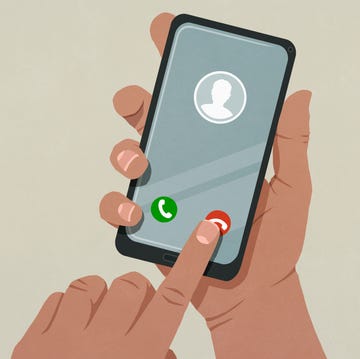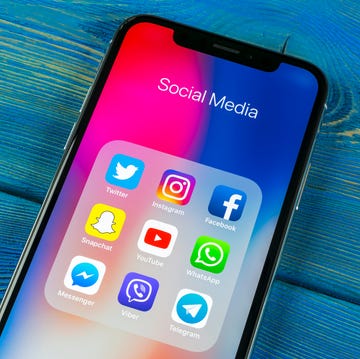Do you suffer from Privacy Paralysis? A sizable 77% of us are so worried about our personal data being stolen that rather than being spurred into action we freeze and do nothing to protect ourselves from cyber threats, says Kaspersky Lab.
Research by the security software company revealed bank details being stolen is the biggest concern, with 48% claiming this is their biggest fear regarding online privacy, while 18% cite identity theft as a major worry.
However, despite these fears, 75% of Brits fail to implement enough, or even any, essential security measures.
Here’s the Good Housekeeping Institute’s top five steps you should be taking to make sure you and your personal data remain safe.
1. Never search for URLs
Cyber criminals exploit search engines and those searching for websites by creating website addresses that appear to be your bank, social network or other online account, but in fact have letters transposed or a different ending. If you enter your account details into these websites, you’re handing them straight to a hacker. Always type the website address yourself into the URL bar and never search for it.
2. Check a site is secure
When making an online payment or using online banking sites, make sure the site is secure. Look for 'https' at the start of the URL, rather than just 'http'.
3. Always use different passwords
Using the same password or similar passwords for your online accounts means that hackers can access all of your accounts if one is compromised. Use a different password for every online account you have to ensure that if those details are stolen, other accounts won’t be affected.
4. Don’t use free Wi-Fi
Free Wi-Fi connections are open to hackers lurking on the network looking to steal your usernames and passwords. Never check your bank account or make financial transactions on free Wi-Fi, use your own home secure connection or 3G/4G.
5. Install security software
You don’t have to use paid-for software. Download free security software from the likes of Microsoft, AVG or Avast. Keep it up to date and perform regular scans on your machine, which will pick up any malicious software that’s been accidentally installed on your machine in a bid to steal your personal data.
Like this? You'll love...
Have you had your Apple ID stolen?
Why you need to back up your smartphone
How safe is your password?













